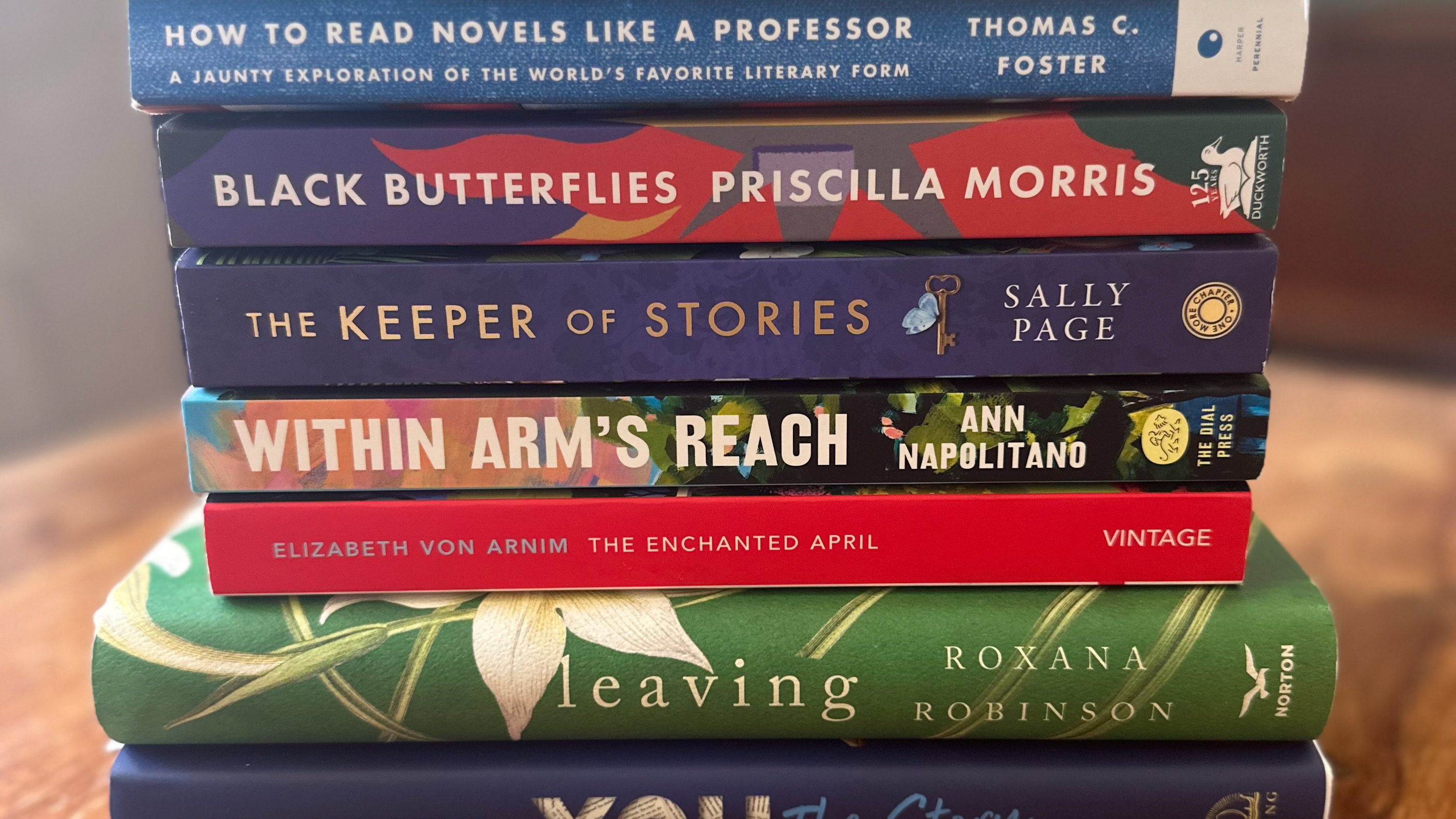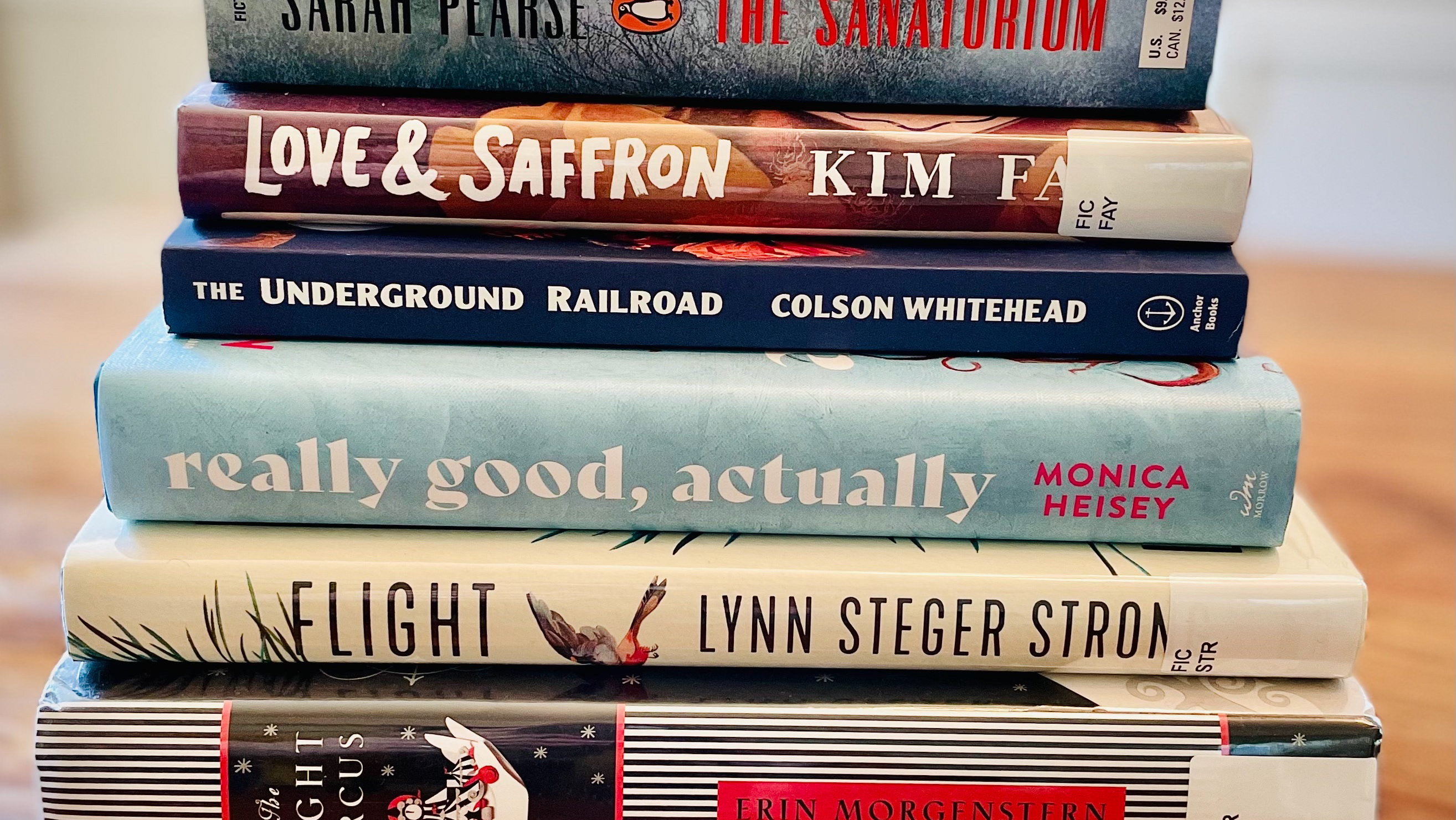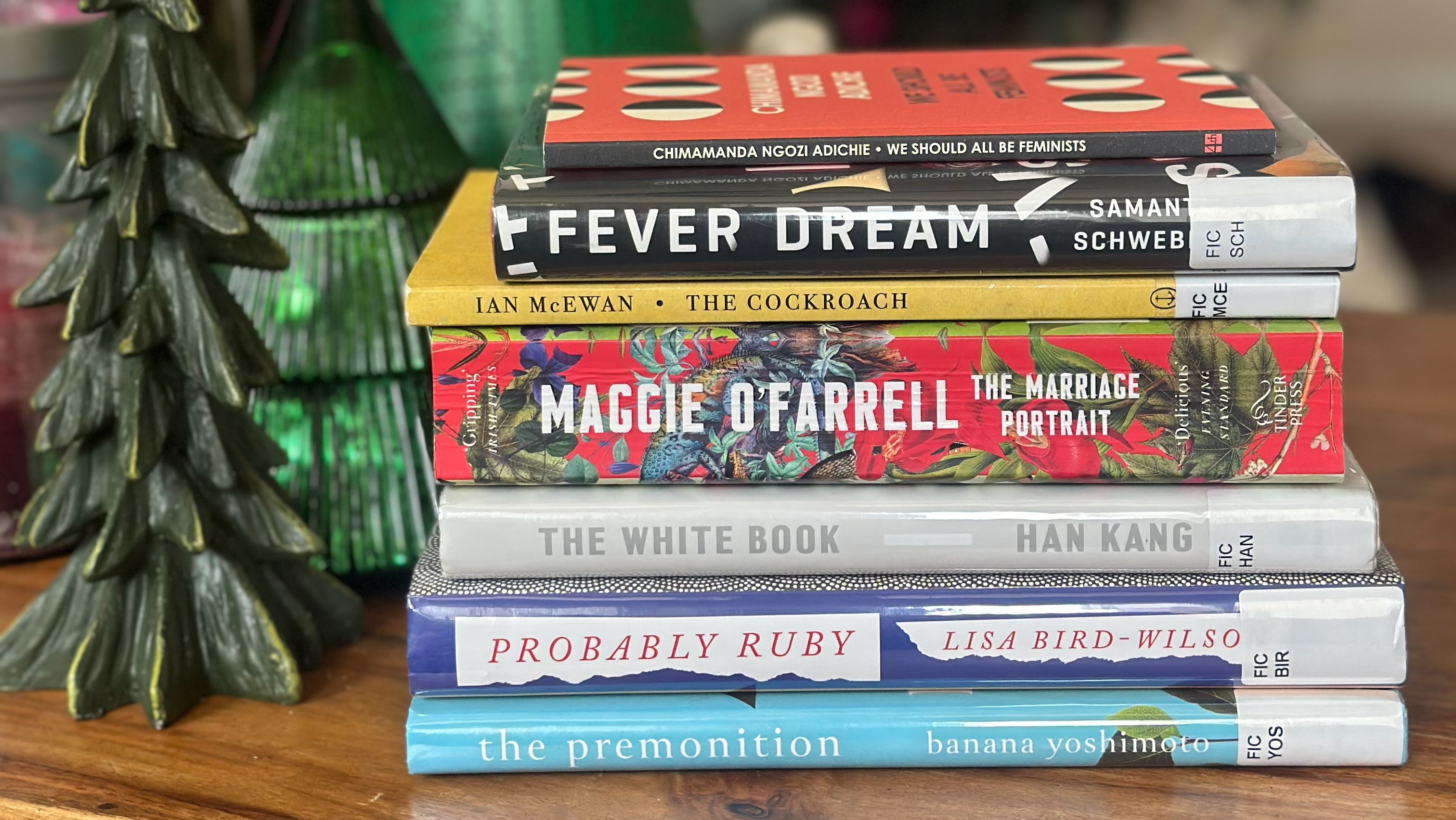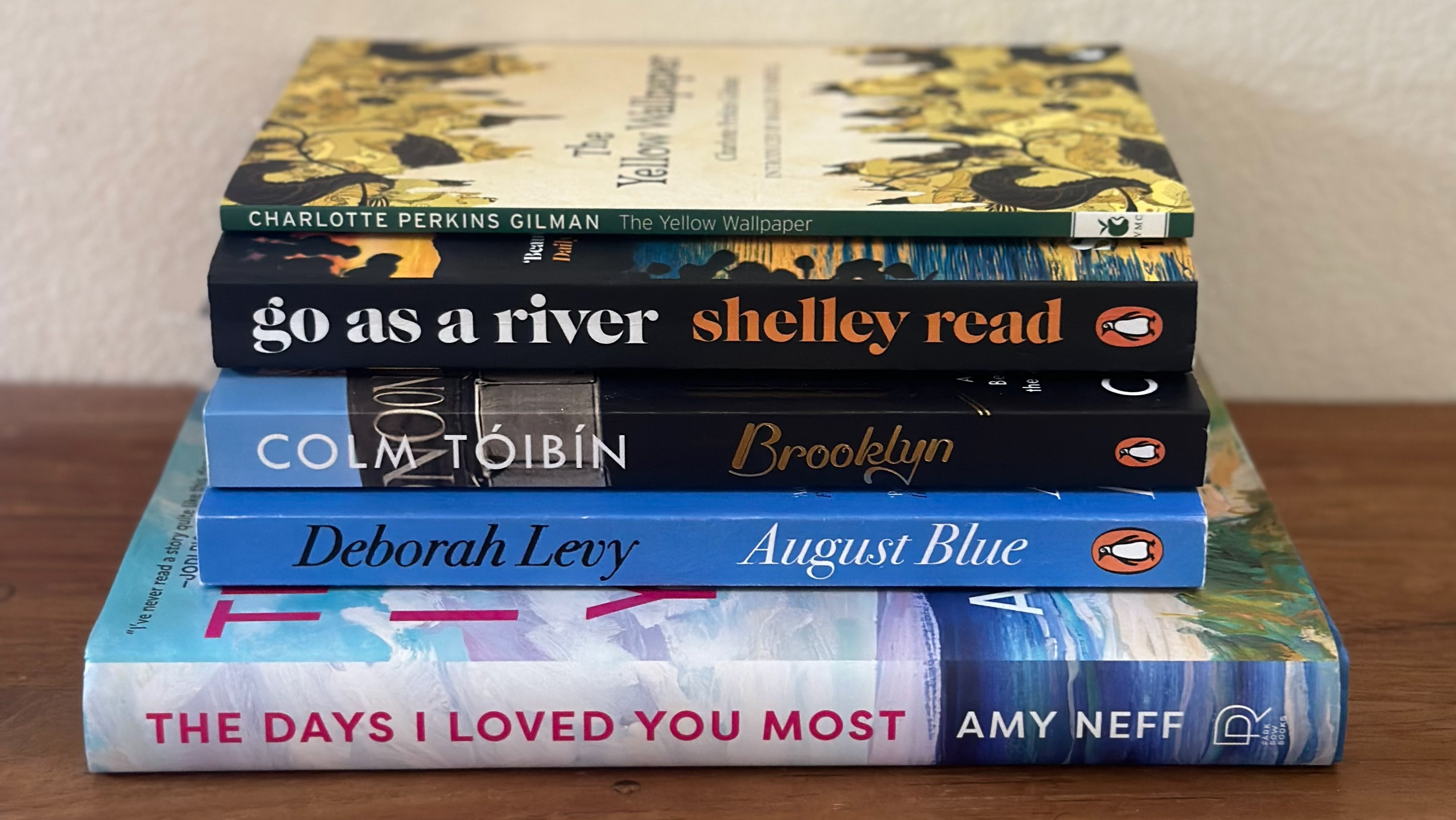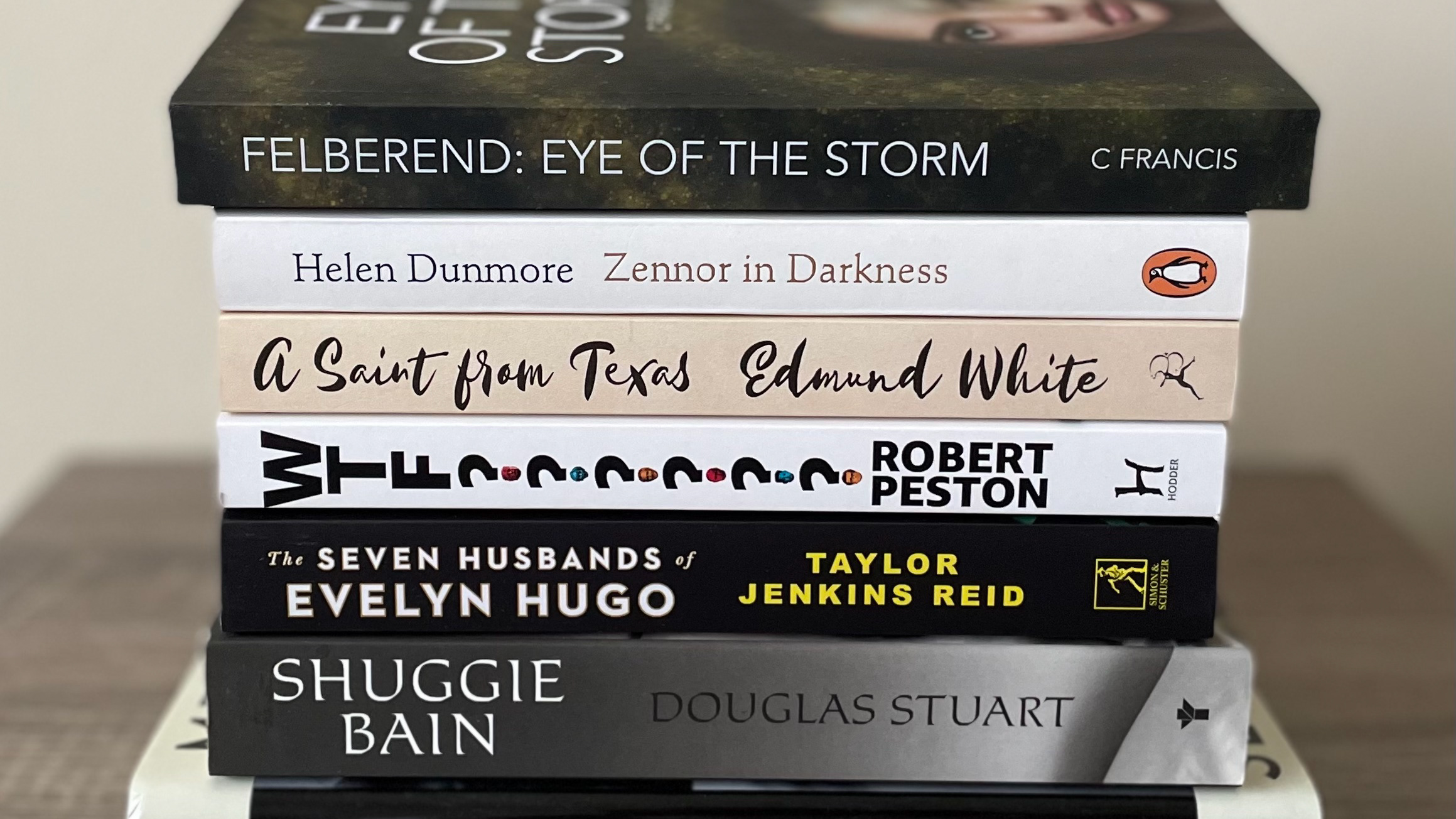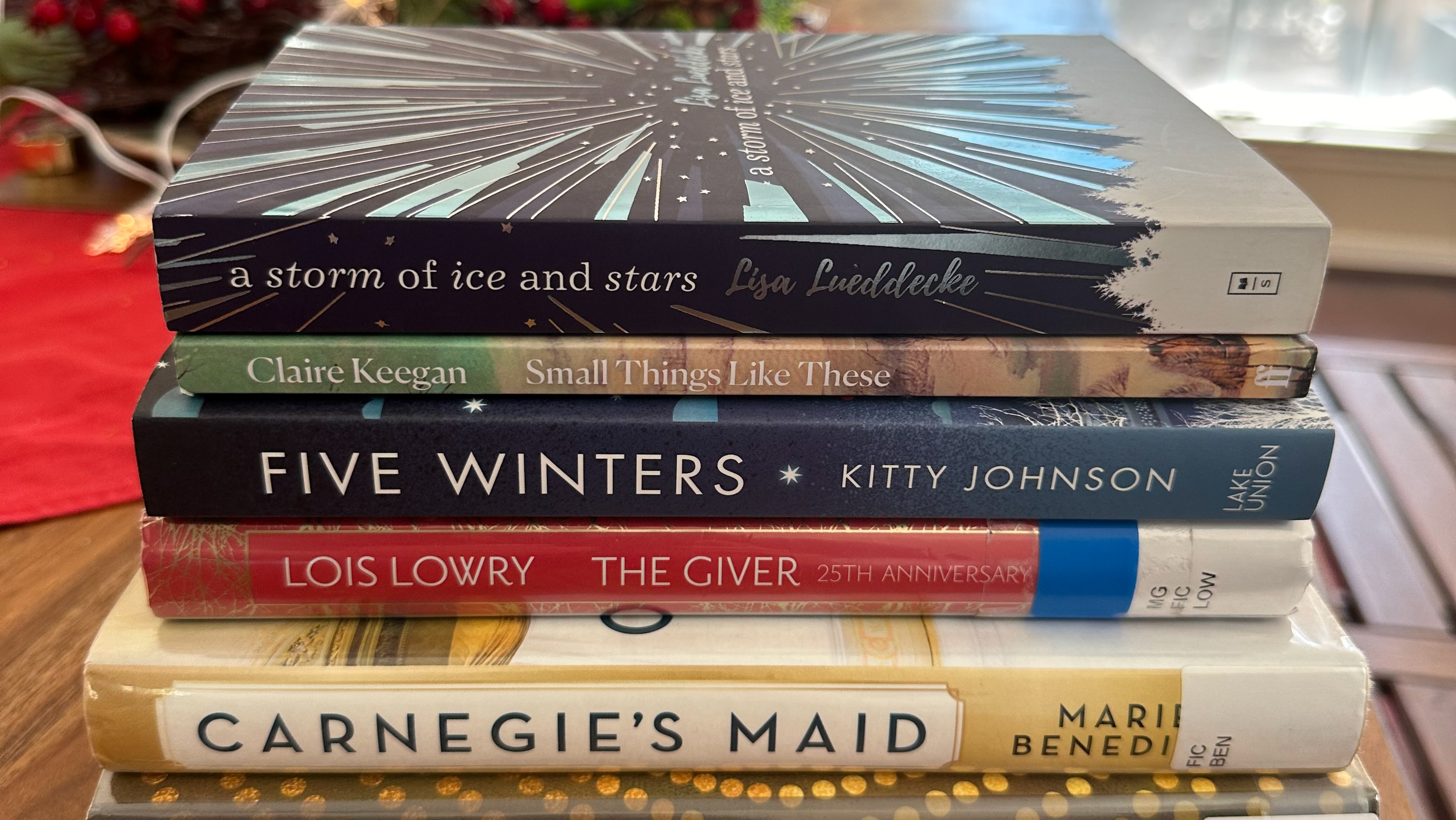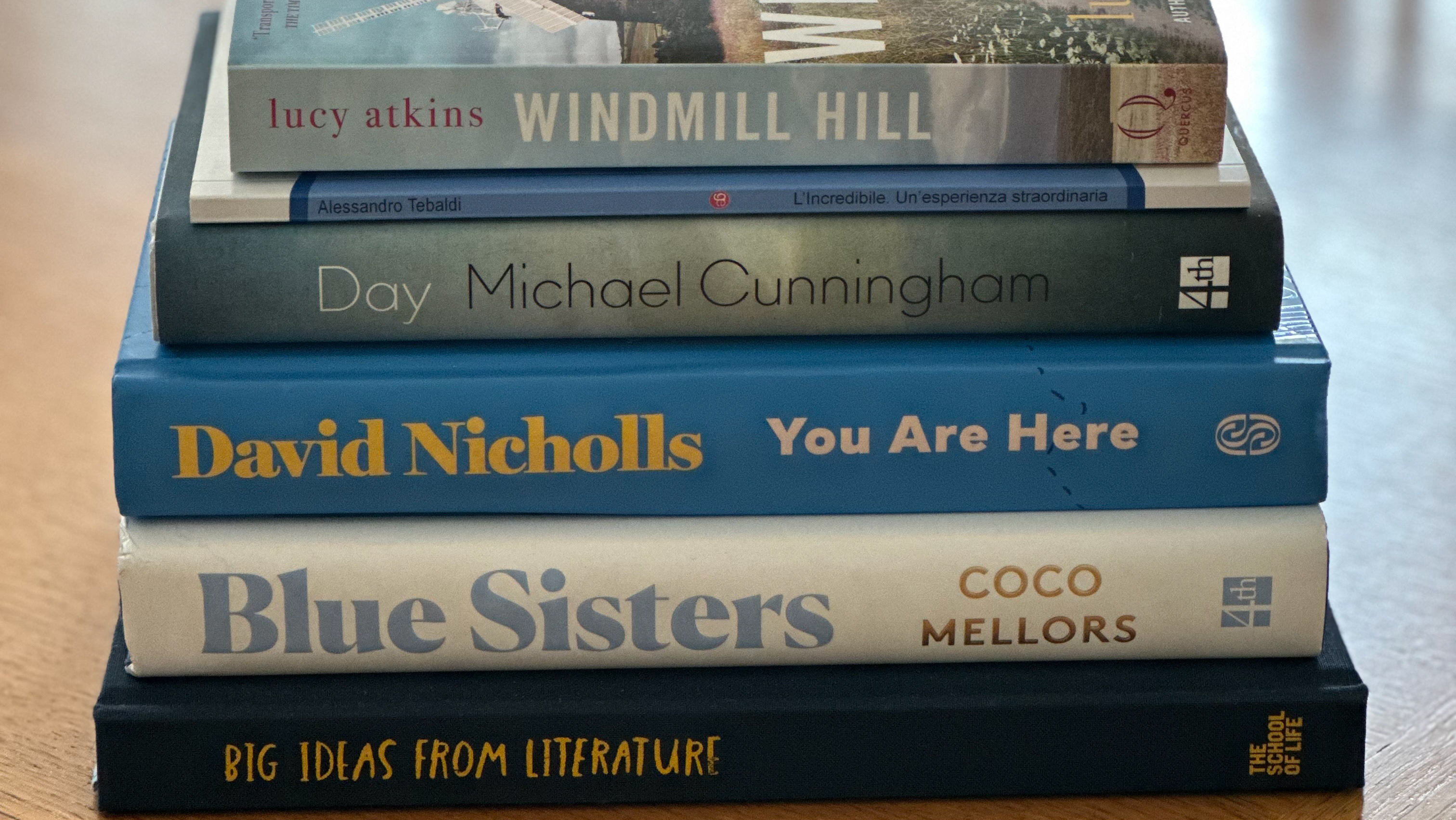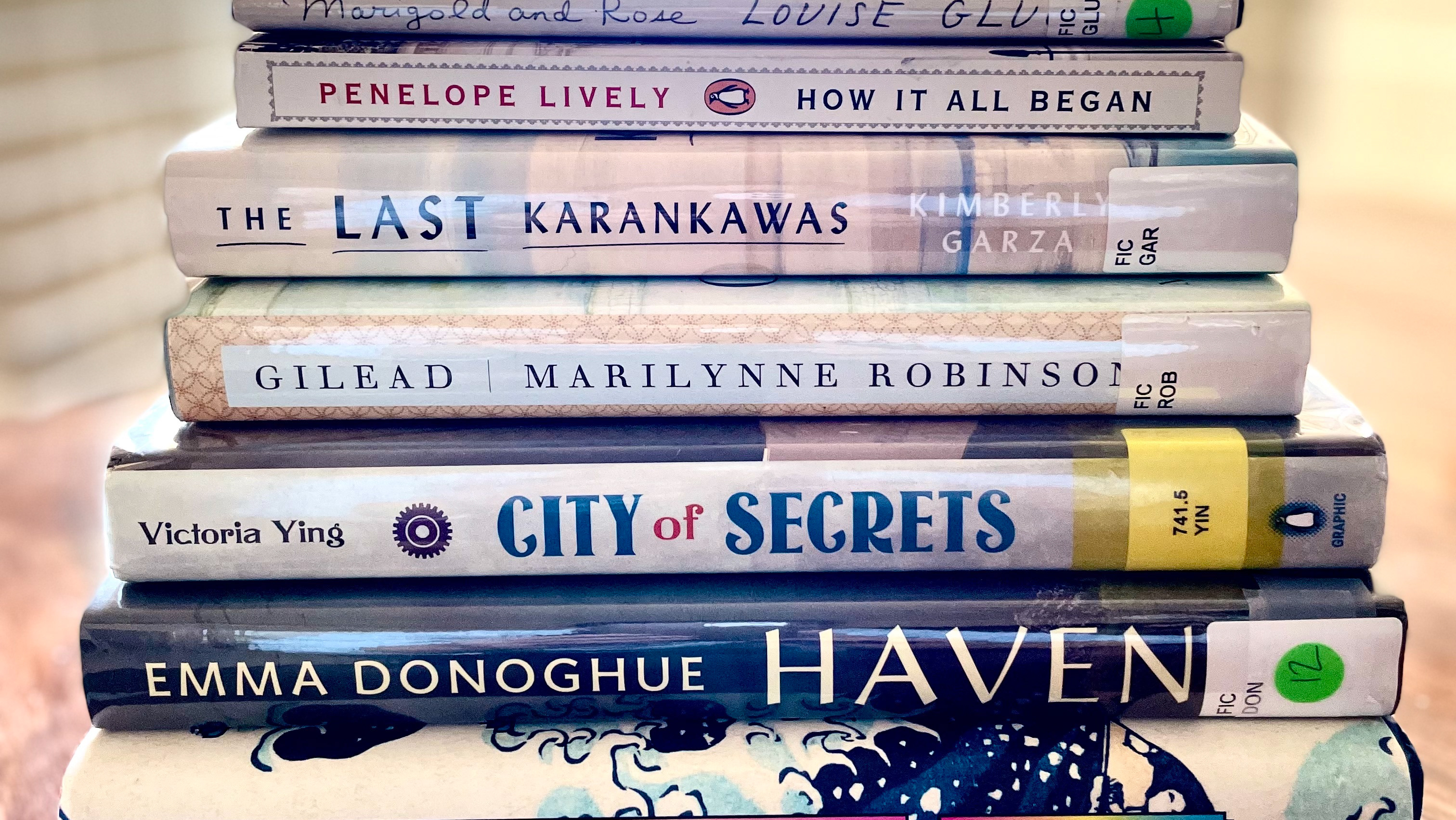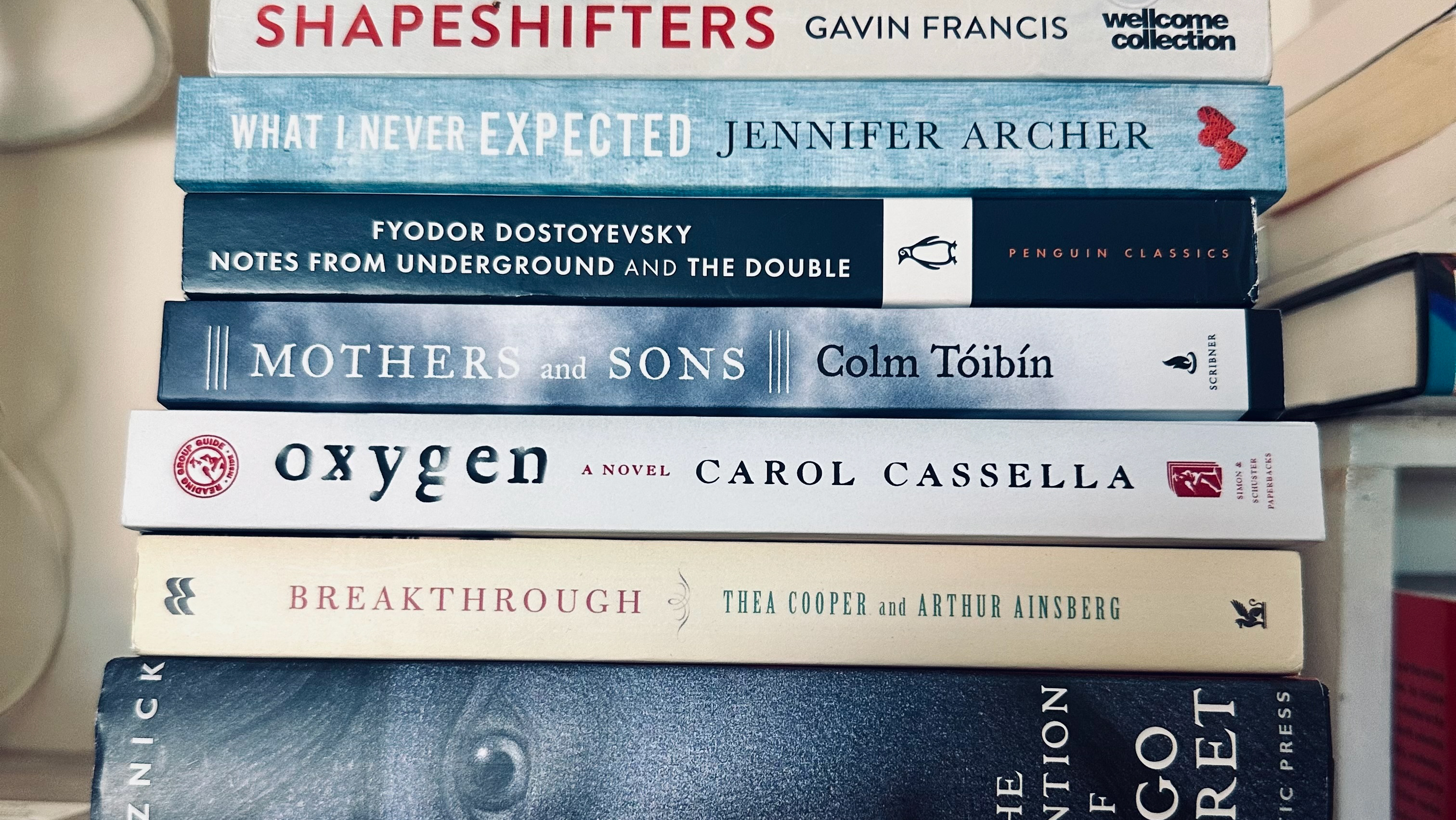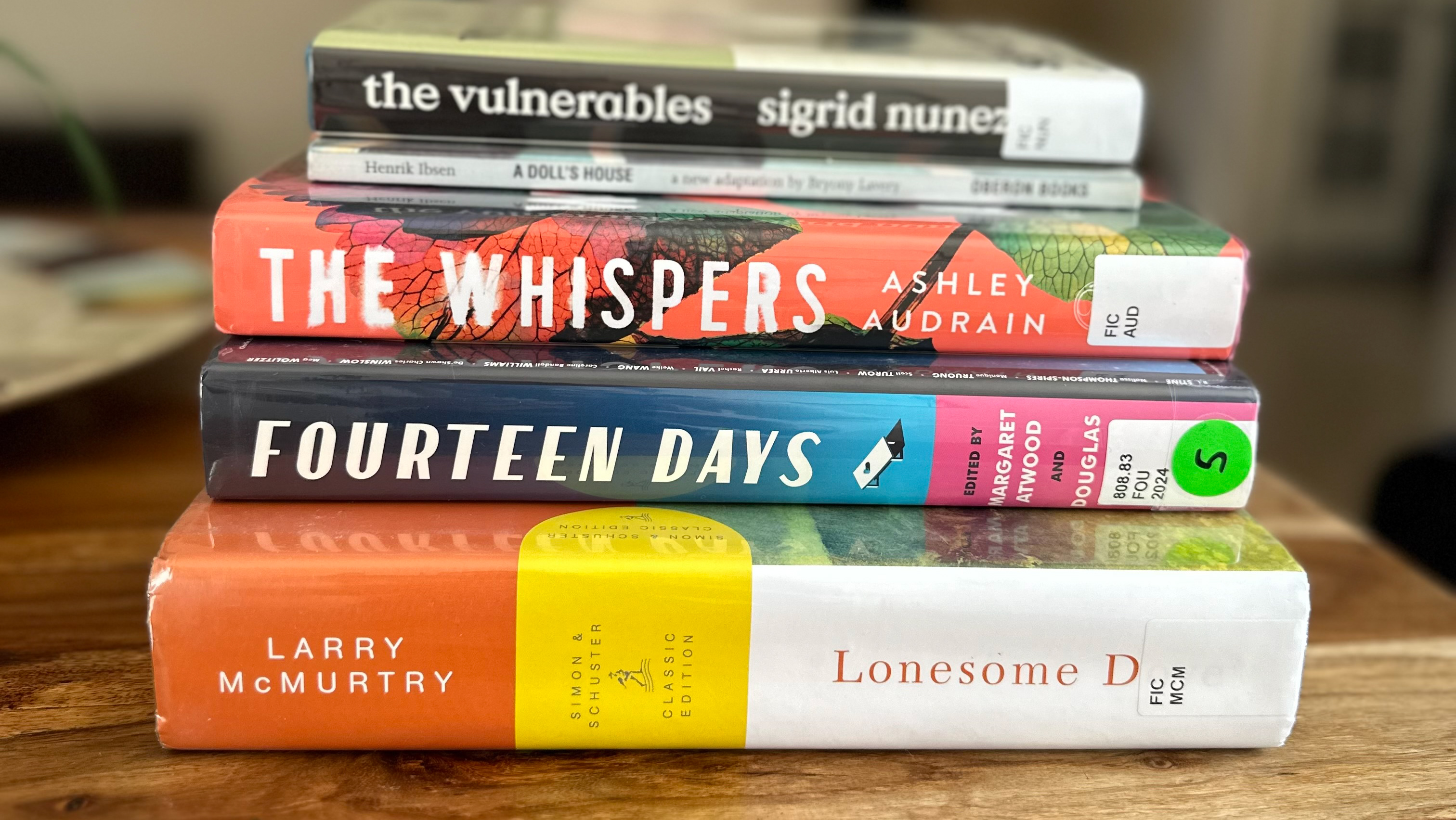Book pile showing range of titles for December 2022 reading onwards. I add reviews which are also posted on Goodreads.
Follow along at www.instagram.com/francisgilbert_bookclub too, if you like what you see.
The Bees by Laline Paull
Impressive accolades from Margaret Atwood 'Gripping' and Emma Donoghue 'One wild ride ... Paull's heartpounding novel wrenches us into a new world', Sunday Times, Guardian, NY Times and The Times. Phew!
Description of the complex world of the hive and its layers of class-bound creatures in this novel is fascinating. I felt absorbed by the imagined infrastructure of a honeybee's environment and the researched, seemingly accurate topography of such an obscure setting is my highest commendation for Paull's novel. Laline Paull 'looked at oil rigs, cathedrals...[the]massive infrastructure of a massive luxury hotel...ocean liners' in order to make the location more familiar for the reader. What admirable attention to detail!
The plot and structure of this novel includes a prologue and epilogue in the human world, whilst the central body of the novel is from the perspective of Flora 717, a bee who is one of the lowest class members within the totalitarian matriarchal hive society of the story.
Although I found many chapters in the mid-section slow in terms of pacing and in contrast, there were some moments when I felt hurried past incidents which caused emotional upset for me, as a human. Yet, perhaps that was the point. I'm not a bee, so losing a child and shifting quickly onto producing another in the natural world is survival. A little grating, but this novel is all about survival of the fittest.
The final chapters are gripping, emphasising the significance of the creatures' scents and their need for a new Queen. Hypnotic in its sensory imagery.
It is a weighty, unhurried read with measured observations in a sort of parable-like style.
Two books I'll be adding to my future book piles are The Ice, Paull's cli-fi eco-thriller about arctic adventurers and the challenging lives of polar bears, and Pod, published Feb 7th this month in the US and later this year in the UK is set underwater and represents rival tribes of dolphins in its ocean setting.
review by Christina Francis-Gilbert
Little Fires Everywhere by Celeste Ng
The title of this novel conjures up powerful possible meanings and encourages luring connotations; it will haunt me for a long while. The hints towards whatever a 'little fire' might represent is clever and expertly woven into Celeste Ng's narrative.
This second novel of Ng's has yet again ripped the carpet from under her readers' feet. The psychological undertones of this novel astound me. Celeste Ng is a talented author. The extended references and motifs which convey ignition of light, the destructive nature of fire and the frightening possibilities that surround this chemical reaction of nature simmer below the surface of the normal lives of characters and families in this novel.
Who are those characters and families? Well, we have the Richardsons, Mr and Mrs and their four children Trip, Moody, Lexie and Izzy. They are introduced as the perfect altruistic and privileged American family. The other main family is a single parent one with Mia, a travelling artist and her daughter Pearl. In the 1990s in Shaker Heights, these two disparate families are brought together through their children's relationships.
Secrets sizzle for many of the characters, causing trouble and fueling numerous clashes and shock twists to the plot. Motherhood, morality, identity and the capability of art are central themes, however a great deal of emotional drive comes from topics like surrogacy, abortion, teenage pregnancy, adoption and parenting.
This novel left me feeling the same way I did at the end of Everything I Never Told You...a little uncomfortable and unnerved.
review by Christina Francis-Gilbert
Talking to ourselves by Andrés Neuman
I wasn't sure when I started this novel. It's written from three perspectives: the mother Elena, feeling grief for her dying husband, the husband Mario, suffering from terminal cancer and anticipating the impact on his family, and their 10-year-old son, Lito, who knows nothing of his father's sickness.
However, the interplay and overlap of these distinctive voices with very different perspectives on the central fatal illness endured by Mario, the father and husband cuts right to the bone. The central topic of grief and how it is anticipated and shared is written with such skill.
This short novel is translated by Nick Caistor and Lorenza Garcia.
The father, Mario takes his son away on a road trip for a few days so that he can experience many things that his father hopes he will remember him by, like sitting in a bar, visiting a beach and driving on the road. The mother, left behind, finds premature solace in a sexual relationship with her husband's doctor. This is a weird and uncomfortable twist, yet it seems logical, as a reader to see her anticipating her life beyond her husband's death. Her narratives are interesting since they present a selection of books (listed at the end of the novel) about illness and bereavement.
This is a novel of grief, presented from all perspectives. It is hard to read at times, since it presents such an emotional representation of how cancer can infiltrate lives and cause behaviour to change under extreme circumstances.
Such an interesting read. So many discussion points and didactic elements to Neuman's writing.
Andrés Neuman is an Argentine-Spanish writer and I'm intrigued to read more of his translated works including 'Traveller of the Century', 'Fracture' and 'Una vez Argentina'.
Review by Christina Francis-Gilbert
Conviction by Denise Mina
A quick read! This was a novel I have read for a book club meeting. I did enjoy it since each chapter moved so well to the next and Mina is a playful user of imagery, which I thought to be strong, if a little twee in places, but great for the modern reader (!), such as:
'Grief is a scar. The tissue is tough and when it's cut again, it heals poorly.'
'Wrong. I was in the wrong story...'
'I wanted to scream a warning, bellow her out of this moment and back into the before, but I felt as if it was raining glass in the hall and I didn't dare open my mouth to speak.'
'The dry metal spring shrieked as the letter box guillotined shut. The sharp echo rattled around the hall... The letter box screamed shut...'
'He ate the whole muffin himself. I didn't want any. It was vegan and tasted of despair anyway.'
'We held hands like Hansel and Gretel on their first night in the forest...'
This novel had a charming comedic nature (not sure if it was intended?!) which reminded me of the film 'Murder Mystery' with Jennifer Aniston and Adam Sandler. The way its murder mystery components click together and build upon each other towards a dramatic, unbelievable conclusion is playful and this is what encouraged my quick reading of the novel. Having said that, much of the novel in the second half did seem a little far-fetched.
I loved the settings of Venice, Saint-Martin, Skibo Castle in Scotland, Glasgow, and London.
In brief, this novel is about identity, starting with Anna McDonald, a Glaswegian housewife and mother of two who is left alone when her Scottish husband Hamish and her best friend Estelle leave her one morning with a shocking revelation that he is leaving her. The protagonist is obsessed with true crime stories, and is left listening to one podcast, which continues to hold the plot together, as it prompts Anna's movements and holds her attention away from her unfaithful husband and broken marriage. She jumps back towards her lying past life/lives and pursues the truth about who really was the killer in the true crime podcast.
Social media, fame and celebrity status, wealth and reputation, surveillance Big Brother state, identity, anorexia and international travel are all engaging themes in this light-hearted, ironically comedic thriller.
I found typos and grammatical errors in every chapter, which bothered me and did ruin my reading experience a little, but I still enjoyed Mina's novel as a fresh and exciting read.
review by Christina Francis-Gilbert
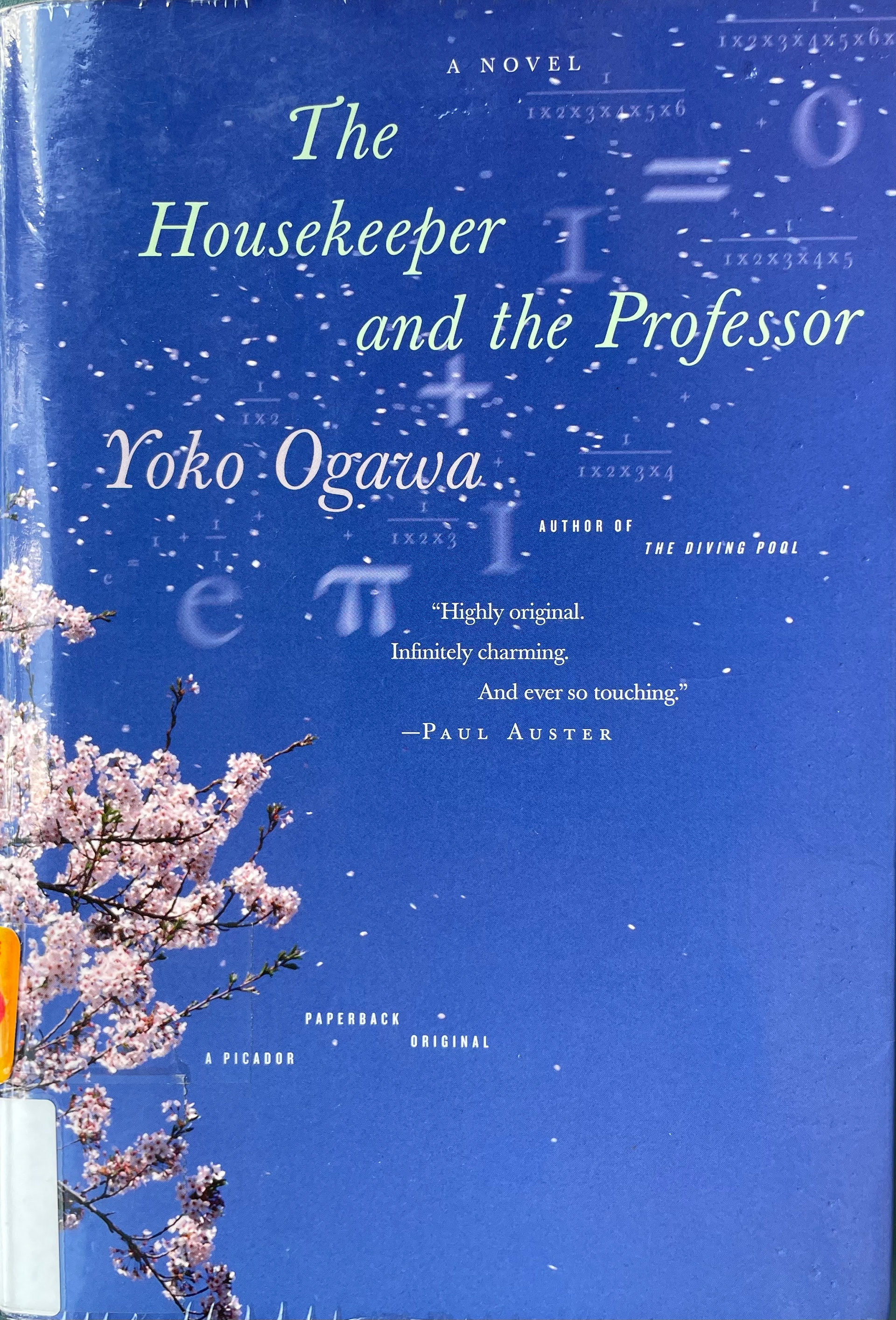
The Housekeeper and the Professor by Yoko Ogawa
This was a smooth and calm read. The plot is minimal, focusing instead on the relationships and connections between characters. The main eponymous protagonists are anonymous as the Professor, whose subject is Maths and his Housekeeper, who is hired to work for him through an Agency and moves with her ten-year-old son to live with him.
The Professor has a strange problem in that only has eighty-minutes of short-term memory, ever since he suffered a traumatic head injury. He survives by pinning pieces of paper with reminders and notes onto his suit. '...by far the most curious thing about the Professor's appearance was the fact that his suit was covered with innumerable scraps of notepaper, each one attached to him by a tiny binder clip.'
The Professor's mind is still alive with mathematical equations and numbers and past experiences involving numbers and their relationships with each other.
The lives of the Professor, the Housekeeper and her son, named Pi by the Professor become intertwined with the connections and momentary observations made between numbers and quantities, like the Housekeeper's shoe size, the distances between base points at a baseball match and the history of learned equations.
As many reviewers have said, this is an elegant, charming and interesting read. For me, I found the story slow to follow and would not say this has been a favourite read of mine, yet I did find it interesting to read of another fictional character, obsessed with placing papers and memories and noted experiences on their exterior, as clothing! It reminded me of a novel I recently read and reviewed 'The Paper Lovers', by Gerard Woodward in which there was a character who also covered himself in paper pieces. He printed extracts from his own poetry and turned them into a suit of his words, memories and experiences. An interesting overlap between these texts.
'Highly original. Infinitely charming,. And ever so touching.' Paul Auster
Review by Christina Francis-Gilbert
Migrations by Charlotte McConaghy
A novel about wandering, climate change and our threatened world, birds and their migratory routes, the true nature of trust, love and understanding in relationships.
This was a beautiful read and I loved the author's style and description of setting right from the start. The opening chapter is gripping, intriguing and offers clear, mesmerising prose. The protagonist appeals to readers with her open and honest comments, along with a hint to her wild character traits.
McConaghy has created what ironically seems to be a timeless novel, since we are never quite sure of whether the events are happening in the near future or present-day. It has references to what sounds to be a future with an natural environment humans have destroyed, yet the motifs and images presented exist for us now. Phrases such as, 'The animals are dying,' and the description of a plastic island and shore covered with dead fish and birds is horrifying because it is so close to our current situation and one we've seen in recent news.
The narrative is divided into multiple timelines, though we never know the exact time or date. The places change between Greenland, Nesting Season, Galway, Ireland, aboard the Saghani ship in The North Atlantic Ocean, Prisons in Ireland and other locations of note.
There are a number of revelations within the plot, which keep the reader engaged since the protagonist Franny Stone appears to be such a changeable character herself and her life is unravelled throughout with a propelling intensity. She is indeed 'fierce and fragile'.
Franny Stone is a wanderer and she is eager to follow the ocean's tides and Arctic terns on their migratory route, possibly their last, from remote Greenland to the South. She manages to convince Ennis Malone, captain of the Saghani ship, to take her, even with her inexperience because she promises her tracked birds will lead the eccentric crew to fish. It is a truly contradictory mission, since she is so against fishing.
I loved this novel. So much to think about and many intriguing prompts for modern readers to consider.
Charlotte McConaghy's final acknowledgement to the, '...wild creatures of this earth and say that this book was written for them out of sadness and regret for those that have been wiped out and for love of those that remain. I truly, deeply hope that the world without animals depicted in Migrations does not come to to pass.'
Review by Christina Francis-Gilbert
Mad Honey by Jodi Picoult
I know now to prepare for the fact that when I read a novel by Jodi Picoult (co-author Jennifer Finney Boylan) I will finish with a whole new knowledge of humanity, as well as an emotional kick towards wanting to do more to help others. Many recent reviewers have used descriptions like 'soul-stirring' and 'riveting' and the dual point-of-view narration of events and relationships in this novel is exactly that. I haven't read anything. by Jennifer Finney Boylan before, so she was a new author for me. I think their interwoven chapters melded so that I couldn't tell whose chapters were whose!
The clever structural elements and additions used by Picoult and Finney Boylan meant that I read this novel carefully and full of attention for both authors' attention to detail. The novel opens with a quotation from SØren Kierkegaard 'Life can only be understood backwards, but it must be lived forwards.' Sharp and ingenious storytelling.
The opening chapter is gripping because it sets a scene which feels uncomfortably familiar, I would expect, for most mothers, who I wager will have at some point during pregnancy have thought that they wanted a daughter or alternately only wanted a son. Mothers everywhere, I'm sure will argue that the gender of their baby was of no importance and that its safe delivery was what they cared about more. Nevertheless, it's a thought that goes through a parent's mind. The maternal narrator Olivia shares her honest thought, 'From the moment I knew I was having a baby, I wanted it to be a girl.' I know this is not necessarily the significant point of the story and its message has far more depth than this, but it is an excellent starting point for readers. Girl or boy? Male or female? Son or daughter?
We hear the telling of events through the perspective of Olivia, the mother of the boy Asher, who is found with the dead body of his girlfriend Lily, and accused of first degree murder. The alternating perspective, told to us on a helix-style timeline, which snakes back from 'December 7, 2018 The day of' to 'September 6, 2018 Three months before' whilst Olivia's entries move forwards to 'June 5-July 1, 2019 Six months after' is that of Lily, the girlfriend who is declared dead in the opening chapter. Clever structure and suspenseful story-telling!
I enjoyed the connections to honeybees, beekeepers, hives, Queen bee mentality, drones and apiaries. This layer of detail draped across the whole tale is beautiful and I believe was chosen by the authors due to the uncertainty, sometimes fear, but also intrigue and admiration we have for these insects and their natural lifestyles.
Parenthood, young love, bullying, envy between friends, abusive relationships, new beginnings, legal principles, values and ethics are all topics addressed here too.
I'm trying so hard not to include any spoilers, since I believe this novel is one to be read, without having received any external thought prompts!
Thus, read this book. It's a little lengthy and the opening chapters may feel difficult to get past but the story is packed full of provocations, emotional twisting incidents as well as didactic nudges.
Review by Christina Francis-Gilbert

